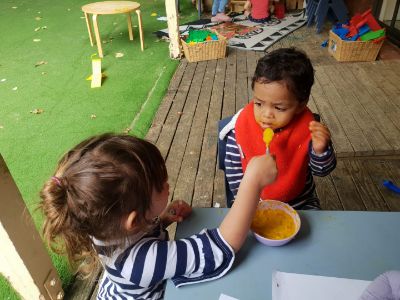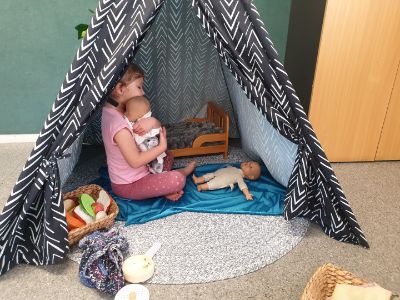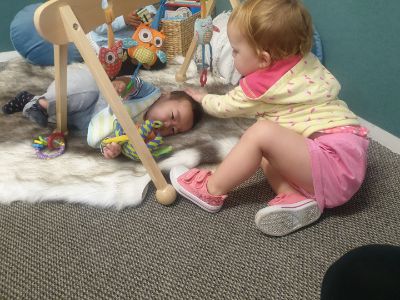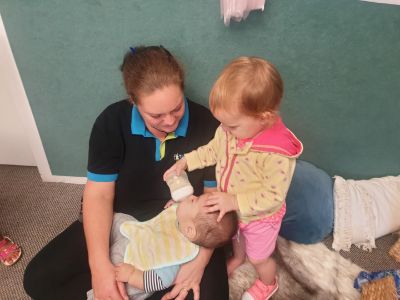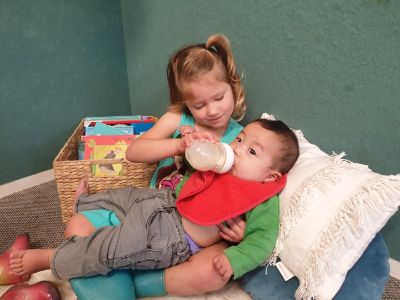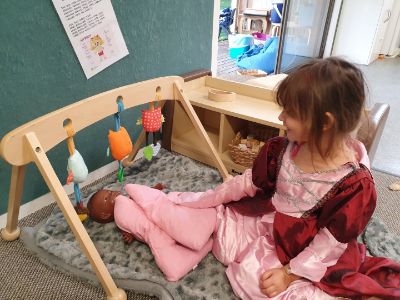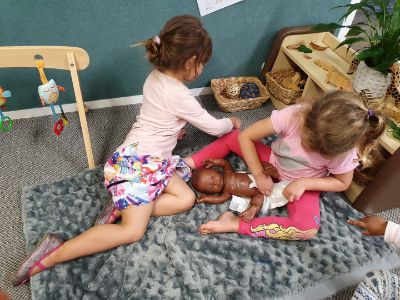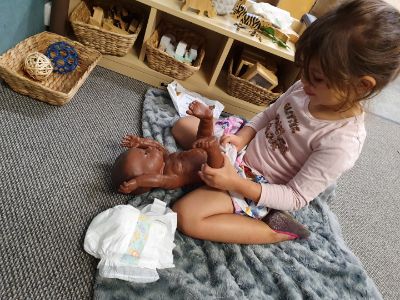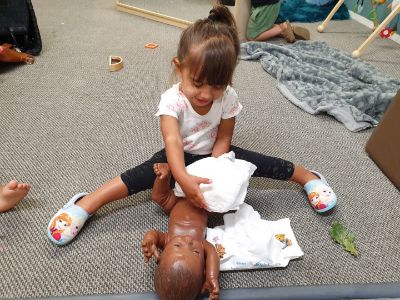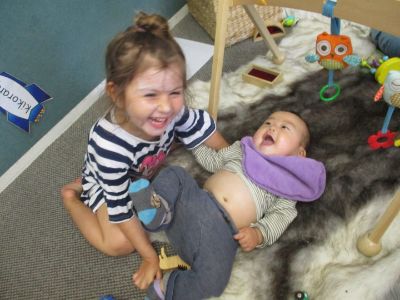LATEST STORIES
Manakitanga at ABC Waterview
At ABC Waterview we have many siblings and we value the relationships that they have. We encourage and foster these relationships by giving the older children opportunities to help out with the younger ones. Often our tuakana (older children) take on responsibilities in our Infants room, coming in to help a teina (younger) child. This act of tautoko (support) develops children’s empathy and Manākitanga (respect and caring for others). Last month we had a new infant Gakuto start and our Preschoolers were very excited! They all had great ideas about what a baby needs and how they could help to care for him. Alongside the teachers the children were able to help feed bottles, put him to sleep and play with him. Gakuto is a very lucky baby with many new sisters and brothers here to help support and care for him.
This has naturally created a huge interest in Imaginative play with children using the baby dolls to act out routines and scenes familiar to them. The children were even given nappies for the baby dolls and this kept the toddlers and preschoolers busy all morning!
Through imaginative play children are able to develop their social competence as they practice their negotiation skills, turn taking and sharing. It provides opportunities for our tamariki (children) to problem solve and experiment with different solutions. Imaginative play also supports emotional development through understanding and expressing their feelings as they re-enactment certain experiences and take on roles that encourage responsibility and empathy. Language is also a big part of pretend play as tamariki practice listening, looking, talking and reading body language.



